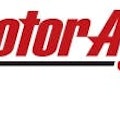CCAR announces new lithium battery content in HazmatU
- New lithium battery content including the most recent and harmonized regulatory changes regarding passenger aircraft restrictions
- Additional content regarding large lithium ion batteries
- New content regarding damaged lithium metal and lithium ion batteries
- Enhanced graphics including interactive 3D images of packages, overpacks, units loads and cargo transport units
- Updated course content regarding segregation and handling of dangerous goods, and
- A comprehensive set of questions and answers (FAQs)
Per the Department of Transportation (DOT) regulations (49 CFR § 172.702) any employee defined as a hazmat employee is required to be trained. So, you ask, who is a hazmat employee? The definition is found in (49 CFR § 171.8) and includes employees that:
- Load, unload, or handle hazardous materials
- Prepare, package, label or mark hazardous materials
- Operate a vehicle used to transport hazardous materials
- Manage or oversee the safety of hazardous materials in transportation
Now of course not all employees at your facility need to be DOT trained, but depending on who is responsible for different operations you may have to train more employees than you thought.
So, for a typical automotive service facility, employees that may need to be trained include:
- Parts Managers - they oversee the transportation of hazmat
- Parts Shipping and Receiving - they load and unload dangerous goods and might even prepare shipping papers
- Other employees that may need to be trained include:
- Parts Drivers - they may transport hazmat.
- Service Technicians - they may prepare and package hazmat (e.g., an air bag being returned to the manufacturer).
- Service Managers - they may oversee hazmat employee operations and may sign for hazmat shipments or hazardous waste manifests for the proper disposal and management of their facility's hazardous wastes.
- Supervisors must also be trained, even if the supervisor is not directly responsible for any of the responsibilities listed above. Indirectly, supervisors are responsible for their employees, and their employees' hazardous materials-related duties.
ABOUT CCAR
As a proud OSHA Alliance Partner, CCAR is celebrating their 25th anniversary here in 2019. The Coordinating Committee for Automotive Repair is a not-for-profit organization that works – internationally in scope – with the automotive industry, the insurance industry, OEM’s, career and technical schools, collision and automotive repair shops, governments, municipalities and other organizations to provide best practice information and training. To learn more about CCAR and its programs, please call 888/476-5465 or visit http://www.ccar-greenlink.org.
ABOUT SHIPMATE
ShipMate, Inc. works with clients to help resolve their most demanding dangerous goods transportation, environmental management and safety issues. ShipMate provides creative ideas and cost effective solutions to resolve and manage their many compliance challenges.
The CCAR and ShipMate online courses offered now include:
- Surface Transportation of Automotive Hazardous Materials (available in English and Spanish)
- Surface Transportation of Automotive Dangerous Goods - Canada (available in English and French)
- Multimodal Transportation of Automotive Dangerous Goods (available in English and Spanish)
- GHS Hazard Communication Standard; and
- A full suite of automotive safety courses
For more information, please visit www.hazmatu.org or contact CCAR at 888/476-5465 or at [email protected].
About the Author
